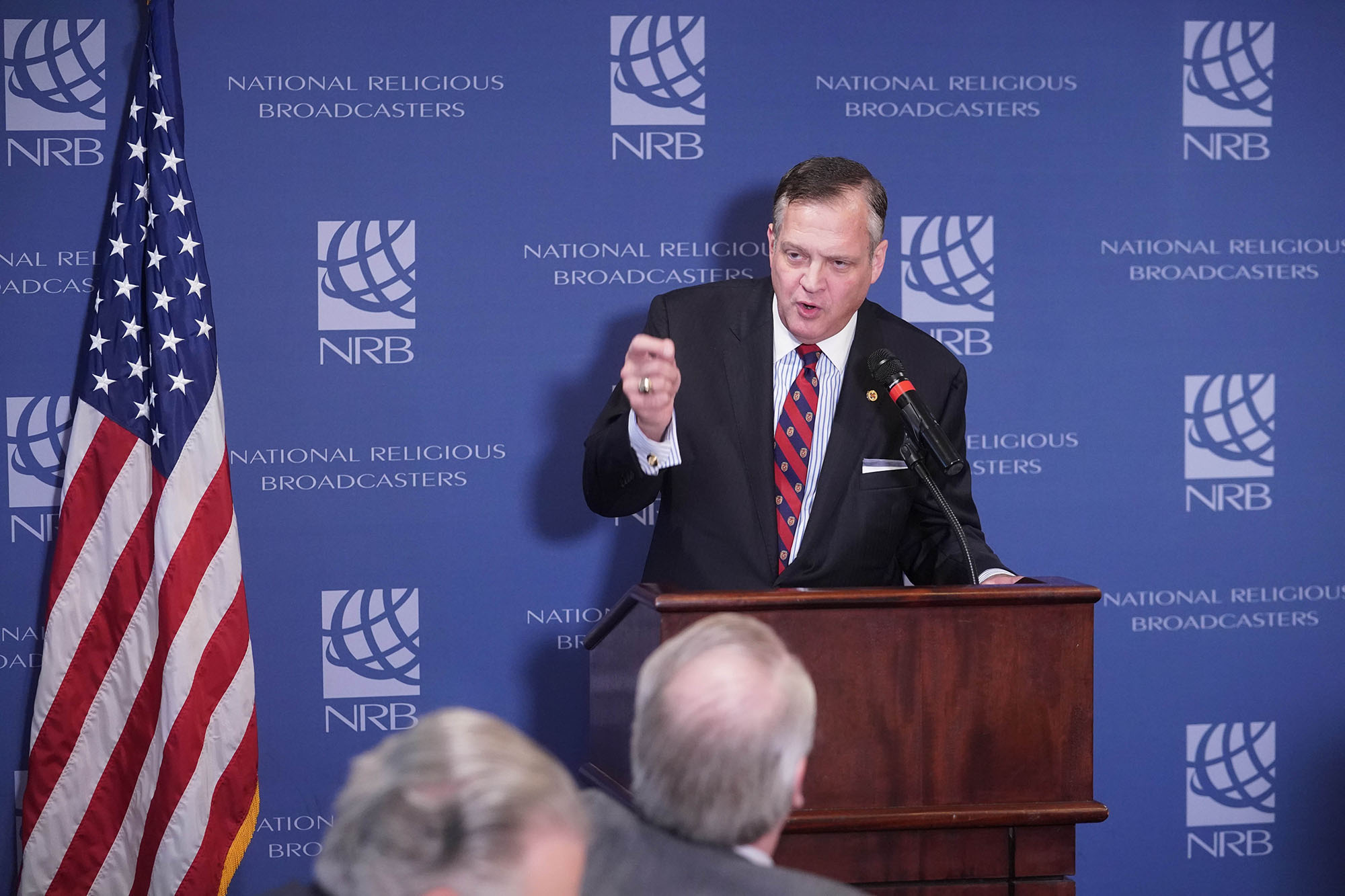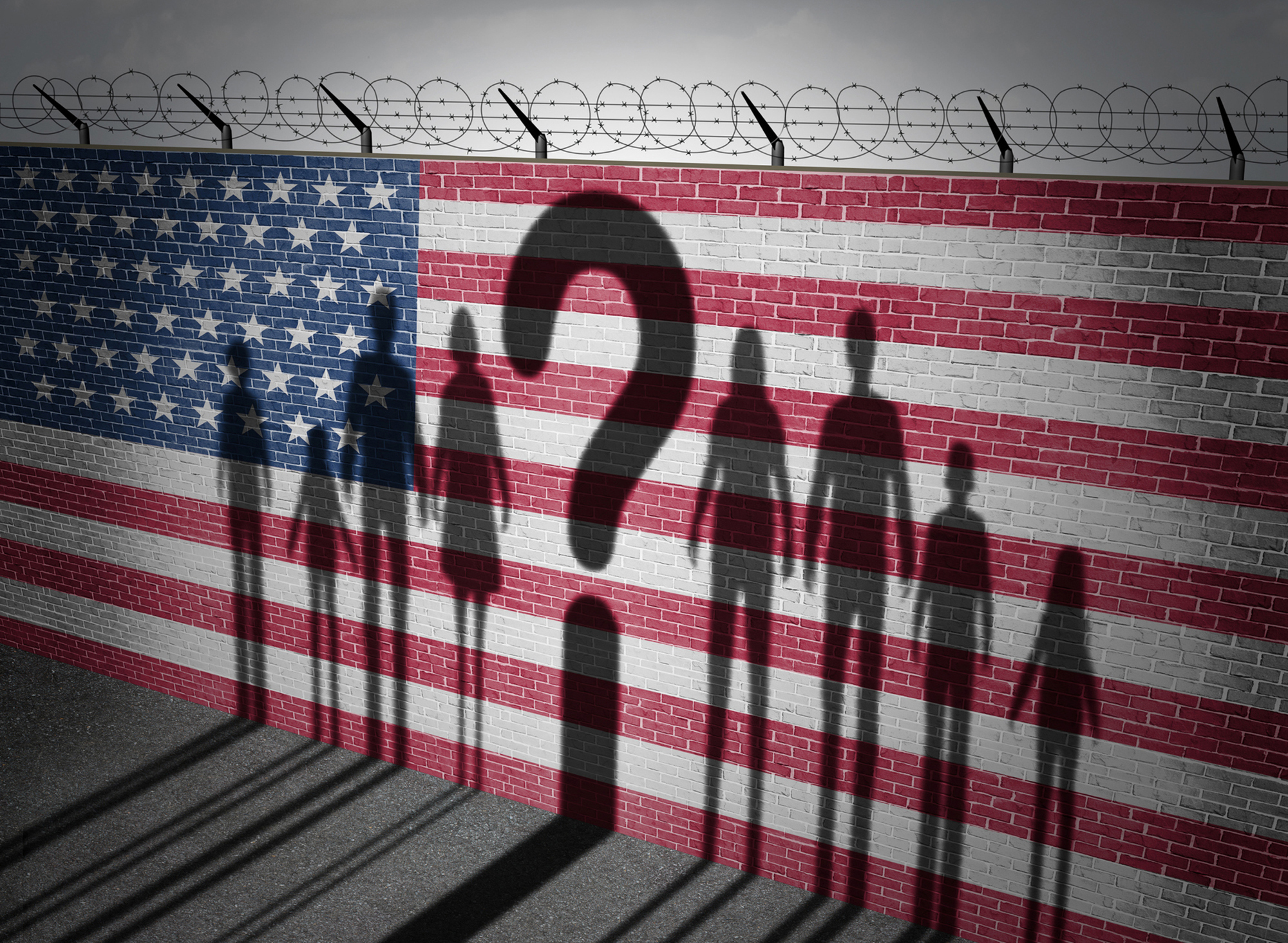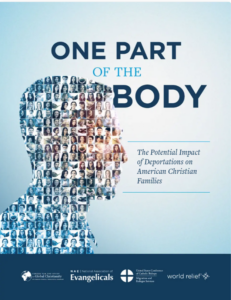
WASHINGTON (BP) — The liberties enshrined in the Constitution are today “confused, contorted, and sometimes even condemned,” R. Albert Mohler Jr., president of Southern Baptist Theological Seminary, said at the National Religious Broadcasters’ First Amendment Lunch in Washington on May 3.
 “Religious freedom, freedom of speech and the freedom of the press — along with the other rights recognized and respected within the Bill of Rights — are all threatened even as other rights are marginalized,” Mohler said during the NRB gathering on Capitol Hill sponsored by In Touch Ministries.
“Religious freedom, freedom of speech and the freedom of the press — along with the other rights recognized and respected within the Bill of Rights — are all threatened even as other rights are marginalized,” Mohler said during the NRB gathering on Capitol Hill sponsored by In Touch Ministries.
“Even more distressingly, a new regime of invented rights threatens to replace the rights that are clearly enumerated within the text of the Constitution,” he said.
Speaking to guests who were in Washington for events related to the National Day of Prayer, Mohler noted that religious liberty “becomes fragile in a secular age,” as do all liberties.
Religious liberty, he said, is viewed today by some as “problematic and out of date” and “injurious to human freedom, sexual liberty, transgender liberation and a host of new imperatives.”
Some contend the freedom of religion is no longer a right, but a privilege, he said.
Mohler quoted a 2016 official report from the U.S. Commission on Civil Rights in which the chairman, Martin R. Castro, wrote, “The phrases ‘religious liberty’ and ‘religious freedom’ will stand for nothing except hypocrisy so long as they remain code words for discrimination, intolerance, racism, sexism, homophobia, Islamophobia, Christian supremacy or any form of intolerance.”
The commission’s report, Mohler pointed out, placed both religious liberty and religious freedom in scare quotes as if they are “linguistic constructions without any objective reality.”
“We are now witnessing a great and inevitable collision between religious liberty and newly declared and invented sexual liberties,” he said, listing various incidents illustrating how the collision is now taking place.
Mohler encouraged Christian leaders to hold on to the truths expressed in the Declaration of Independence and to defend these truths “that should be, but often are not, recognized as self-evident.”
And to the generation of young people who are committed to the Gospel of Jesus Christ but assume that the defense of religious liberty is political, Mohler said they also need to be committed to the free propagation and voicing of the Gospel, without which sinners will not hear the Gospel.
“We’re in a fight that’s worth fighting,” Mohler said. “And we understand that as we contend for the freedom of religion, and the freedom of speech, and the freedom of press, again, we’re doing this not just for ourselves and for our children, not just for our churches, but for the world.
“Let’s pray that God will give us wisdom to hold these truths in perilous times,” Mohler concluded.
Steve Gaines, president of the Southern Baptist Convention and pastor of Bellevue Baptist Church in Memphis, Tenn., tweeted after the event that Mohler’s address was the “greatest word I’ve ever heard on religious liberty. Grateful for him.” Gaines, an NRB member, gave the benediction at the conclusion of the NRB lunch.
NRB initiative to counter online censorship
After thanking Mohler for “ringing the bell” in defense of First Amendment freedoms, Jerry A. Johnson, NRB president, recapped how evangelical preachers were taken off network radio 75 years ago as many were rising in popularity, with some topping even secular programs.
It was at that time that NRB was formed, eventually leading to the return of evangelical Christian communicators to network radio, Johnson said.
Today, there is a similar kind of revolution in communication, as witnessed with the widespread use of mobile devices in everyday communication, he continued.
“If being taken off radio 75 years ago was a violation of First Amendment principles, being taken off of this today is a violation of First Amendment principles,” Johnson said, holding up his cellphone.
For this reason, NRB launched its Internet Freedom Watch, an initiative monitoring the suppression of Christian and conservative views on the internet by private companies — and pressing those companies to acknowledge and address online censorship.
“What we’re seeing is a systematic shutting down, shadowing, ghosting, silencing conservative and Christian content,” Johnson stated.
While big tech companies including Facebook, Twitter and Google have not yet responded to NRB’s calls for policy change, more lawmakers on Capitol Hill have begun to acknowledge the issue, with some pressing Facebook CEO Mark Zuckerberg with questions proposed by NRB during congressional hearings in April. Furthermore, the House Judiciary Committee held a hearing on online censorship in late April featuring two victims of online censorship — Rep. Marsha Blackburn, R-Tenn., and social media commentators Diamond and Silk.
“What we want to talk about is demanding, appealing, expecting nothing less than a true community, an open community,” Johnson said.
“Facebook uses the word community, but what they’re creating is an echo chamber. We want a level playing field. We want a town square for the world of ideas,” he continued.
“Why not adopt a standard that we all understand. It’s a fair standard. It’s an American standard. Why shouldn’t these companies just say, ‘We’re going to follow the First Amendment?'” Johnson proposed. “This is what we’re calling for.”
Prayer for the nation
Also making remarks at this year’s First Amendment Lunch was Ronnie Floyd, president of the National Day of Prayer and an NRB member, who offered a word of greeting and a prayer for the nation and the prayer events around the nation.
“Today, all over this country, already thousands have gathered in all kinds of ways, in all kinds of places, on the National Day of Prayer,” said Floyd, who is also senior pastor of Cross Church in northwest Arkansas and immediate past president of the Southern Baptist Convention. “What an opportunity it is that on this day we’re able to gather in this great city, forwarding the importance of prayer in America,” he said, describing prayer as “a gift that the Lord has given us.”
The theme for the 2018 National Day of Prayer is “Unity,” Floyd said, emphasizing its importance in America and how Ephesians 4:3 — the verse upon which the theme was based — calls on believers to make “every effort to keep the unity of the Spirit through the bond of peace.”
“Unity is supernatural and only happens through the power of God,” Floyd said. “And because we believe in the power of prayer that beseeches the heart of a merciful God who is sovereign over all affairs, I’m thankful today that when I pray, I have the confidence that God is able.”
Floyd concluded his remarks by reminding Christian leaders that “a divided church cannot call a divided nation to unity.”
“We as the church of Jesus Christ need to model what true Christian unity is just as Jesus prayed for us to experience that together in John 17,” Floyd said before leading the audience in a time of prayer.













